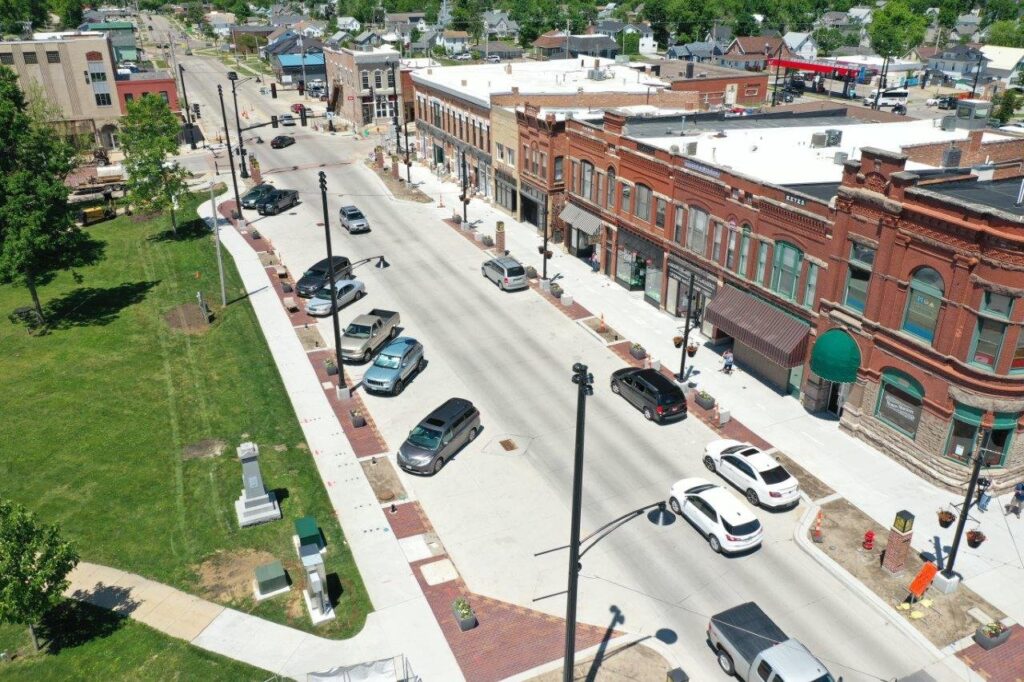Uptown Coffee Company to open second location at NewBo City Market
CBJ News Staff

An aerial view of uptown Marion. CREDIT CITY OF MARION
There are some parking concerns in Uptown Marion, based largely in specific areas and at certain peak times.
But the problem may be more a matter of perception and communication than reality, and for the time being, many of the issues can be adequately addressed through better utilization of existing parking supply and forging new partnerships with private businesses and organizations.
That’s the essential conclusion of a…

Get immediate, unlimited access to all subscriber content and much more.
Learn more in our subscriber FAQ.
Do you want to read and share this article without a paywall?
